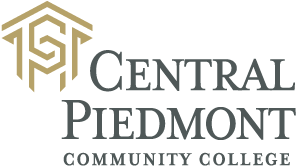The Central Piedmont Community College Music Department dates to the earliest years of the college with Gene Bryant the first instructor and director who shaped the formation of the program.
College mythology says that Gene asked Mary Lou Paschal to create a recorder ensemble and she demurred as not “knowing enough.” He promptly put the course on the schedule with her name beside it: early music was born at CPCC.
The philosophy for early music ensembles at CPCC is to study and perform a wide variety of music from the Medieval, Renaissance and Baroque periods. In the earliest days the members were novice music students; soon a core of experienced players and life-long learners emerged to strengthen the ensembles. Life-long learners bring continued passion and increasing knowledge and skill. They also own a variety of instruments, expanding the college’s holdings. Experienced players provide younger students with an opportunity to rub shoulders with more advanced players and the ability to perform diverse and more difficult music. The college benefits from such diversity in the classroom.
In the early 1970’s the college had a faculty recorder ensemble: Gene played tenor, Mary Lou played soprano and Webb Wiggins, bass. Webb, a pianist, developed an interest in harpsichord; Gene, ever the supportive boss, secured an instrument for the college. In 1975 Richard Kingston, then an emerging builder and now recognized as a master craftsman, delivered a French double harpsichord to the campus. Webb excelled as a harpsichordist and is now on the faculty of Oberlin Conservatory.
The recorder ensemble evolved into the CPCC Early Music Consort, MUS 141E. Consort means “family” (of like instruments). Represented now are the families of recorder, harp, viola da gamba and krummhorn. Consorts can be “broken” by mixing the groups and by adding other instruments such as cornetto and mute cornetto, sackbut, hurdy-gurdy, bagpipe, flute, pipe, shawm, jews harp, flute, psaltery and others. The ensemble usually prepares two concert programs a semester.
Nearly 25 years ago a folk music curriculum was instituted in collaboration between the college and members of the Charlotte Folk Society. Most of the courses (old-time jam, claw-hammer banjo, old-time fiddle, Appalachian dulcimer, etc) were taught in the oral tradition by skillful area practitioners. At the same time the Tuesday Evening Recorder Ensemble, MUS 141R, was born. Comprised of life-long learners and an occasional music major, the ensemble, which requires no audition, is an entry level course into early music at the college and performs at the end of each semester.
Early music lovers are fortunate that Dr. Scott Bauer, present Division Director of Arts and Communication, is familiar with early music, is supportive of the program and has worked to provide three excellent early music venues. He oversaw the renovations to convert Sloan-Morgan, a former office building, into the primary space for music; SL 101 – Bryant Hall is an effective combination of small venue and classroom. He worked on the performance halls in the new Overcash building: the 145-seat Recital Hall and the thousand-seat Halton Theater are excellent venues, both visually and acoustically.
The Wednesday evening Baroque Ensemble, MUS 141B, class began in Fall 2004. Students play in small ensembles with literature tailored to their technical, musical and ensemble skills. This semester’s class contains three music majors, a recently immigrated oud player who is learning to play figured bass, and seven life-long-learners; instruments include harpsichord, flute, violin, harp, recorders, violas da gamba, oud and bagpipe. Once again, the open door brings a variety of students and their diversity enriches the learning environment.






